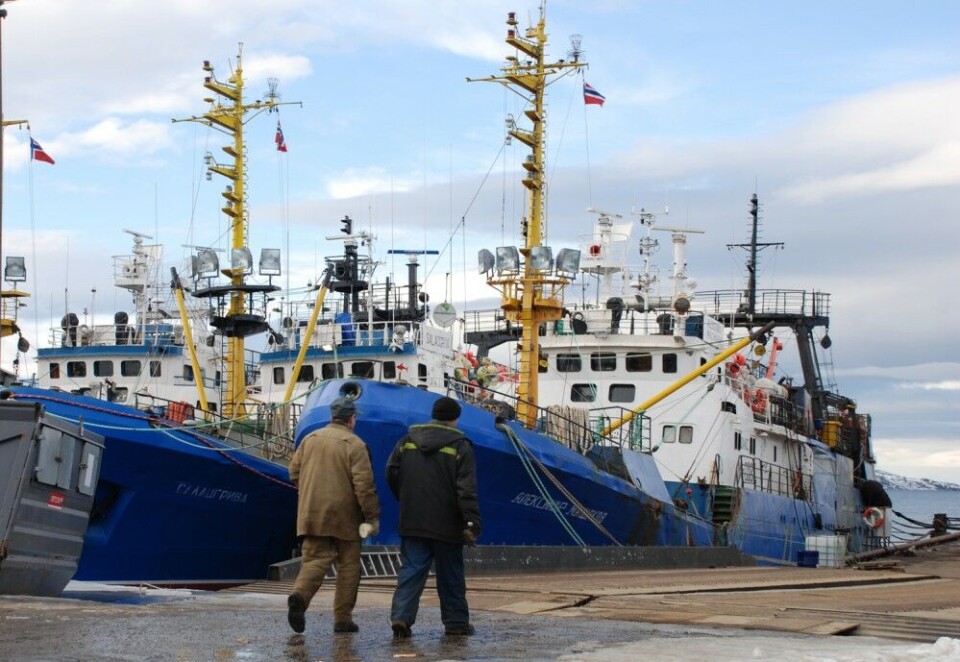
Security interests spice up Barents fishery talks
Cod still brings Norwegians and Russians together around the table. But in the background looms the far more active role of the Russian military.
The two countries mark 40 years of successful fishery cooperation with another deal on quotas in the Barents Sea.
«The agreement secures a continued sustainable harvesting of the resources», Norwegian Minister of Fisheries Per Sandberg says on the government website after the signing of the deal last week.
The agreement follows a forty years tradition of close bilateral cooperation over fishery management in the Barents Sea. In last week’s meeting in the Joint Fishery Commission, held in Moss, Norway, the two sides agreed to set the regional cod quota to 855,000 tons, a slight reduction from the previous two years. Each of the countries will be allowed to catch about 400,000 tons in 2017.
«The result is fully in line with our expectations and gives a good basis for revenues and stability in Norwegian fisheries», says Kjell Ingebrigtsen, leader of the Norwegian Fishermen’s Association.
«We are happy with both the process and the result», he underlines in a press release.
In the background, however, lures a stronger involvement of Russian military interests. Among the participants in the Commission meeting were not only representatives of the FSB’s border guard service, but also of the Northern Fleet.
The Russian Navy is significantly increasing its activities in the Barents Sea and now regularly close off major parts of the area because of drills. That has spurred frustration among both Russian and Norwegian fishermen. It has also made it harder for Norwegian vessels to enter waters in the Russian economic zone.
The new agreement addresses the right of both countries’ fishing vessels to enter each others’ economic zones, as well as a continued cross-border cooperation in the field of fishery research.
However, the deal also includes an apparent trade-off with the Northern Fleet. The Commission meeting protocol states that the Russian side will allow Norwegian research expeditions in Russian waters only «under the precondition that a representative of the country’s Ministry of Defence is on board the Norwegian vessels».
The ministry representative will have «the power to control the coherence of the actual operations of the research mission including a full and trustworthy list of equipment with the applied purpose».

Researcher Anne-Kristin Jørgensen from the Fridtjof Nansen Institute says to the Barents Observer that both Norwegian and Russian fisheries have been challenged by the increasing level of military exercise in the Barents Sea.
Jørgensen, a senior research fellow, has been following the fishery negotiations for years and was previously herself directly involved in the talks as Counsellor for Fisheries at the Norwegian Embassy in Moscow.
«In many cases, Russian fishery interests have had more in common with their colleagues in Norway, than with other stakeholders on the Russian side», she says.
She argues that this year’s agreement again shows that the two countries’ fishery cooperation continues like before despite the colder political climate.
«In a remarkable way, they manage to keep focus on their key issues and stay clear of the political tensions».
















